This four part blog post series documents my second trip to Catalunya in August and September of 2016. This is the trip I started to really discover what the region is all about, or rather how it ebbs and flows. Read Part I on rediscovering the city of Barcelona, Part II on some Gaudí masterpieces, and Part III on the mountain range of Montserrat.
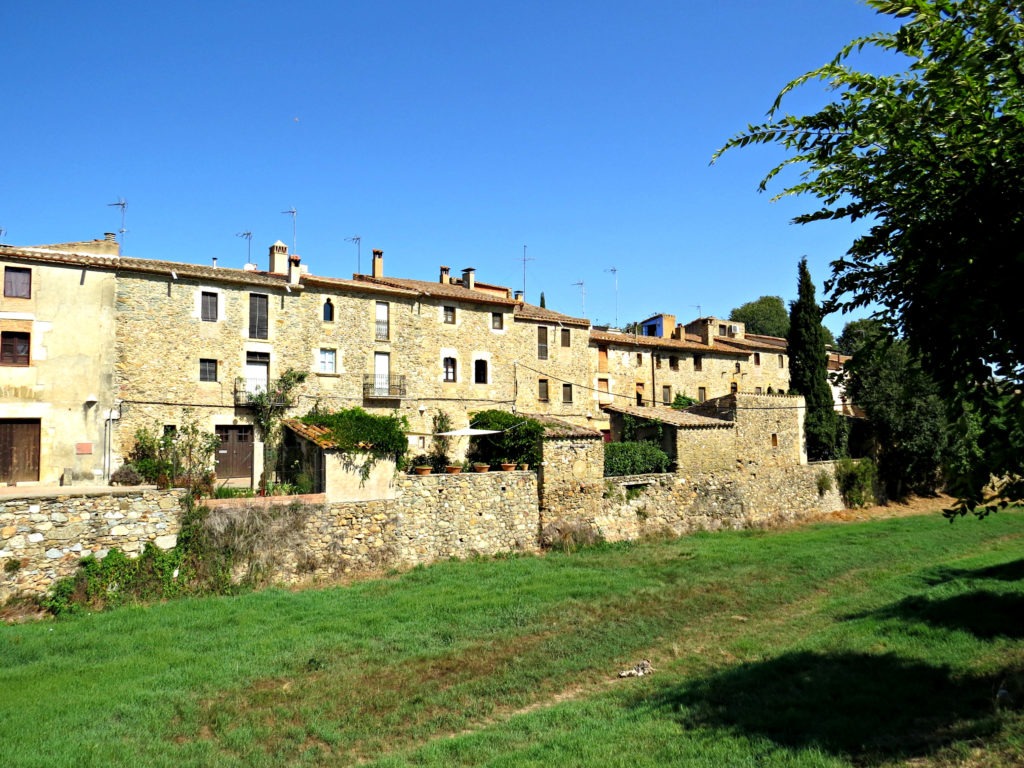 I had been dreaming of this trip since I first landed in Catalunya. In all my adventures, I have had very little exposure to anything medieval. I mean to be honest, living in the US, Thailand, Australia, and Finland does not offer any such kind of experience. Catalunya is medieval town central, and so I carefully planned our day tour around the beautiful countryside. I first ventured into these towns on my first trip to Barcelona, though we ventured to the west of Costa Brava.
I had been dreaming of this trip since I first landed in Catalunya. In all my adventures, I have had very little exposure to anything medieval. I mean to be honest, living in the US, Thailand, Australia, and Finland does not offer any such kind of experience. Catalunya is medieval town central, and so I carefully planned our day tour around the beautiful countryside. I first ventured into these towns on my first trip to Barcelona, though we ventured to the west of Costa Brava.
Baix Empordà is a county within the province of Girona on the Costa Brava, situated at the northern-most-point of Catalunya. The area is full of medieval villages, beautiful hillsides, and fishing villages. There are so many towns to choose from, but I decided on three of them: Monells, Peratallada, and Pals.
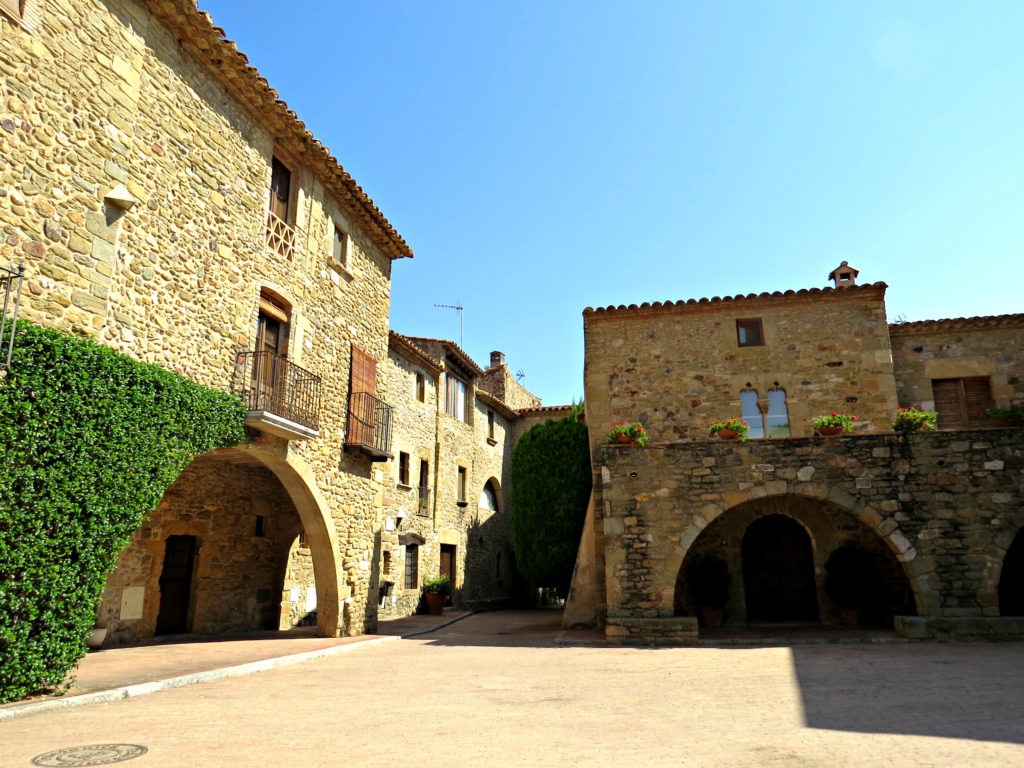
Monells
Our first stop was Monells, a typical medieval town with lots of character and beauty. The drive north from Barcelona takes about two hours. I would recommend renting a car, but if you really want to visit via public transportation you can take the high speed train from Barcelona to Girona which takes about 40 minutes. From Girona, you will take Bus #55 to La Bisbal D’emporda which takes about 45 minutes. Definitely a long journey, so I would again highly recommend the rental car option!
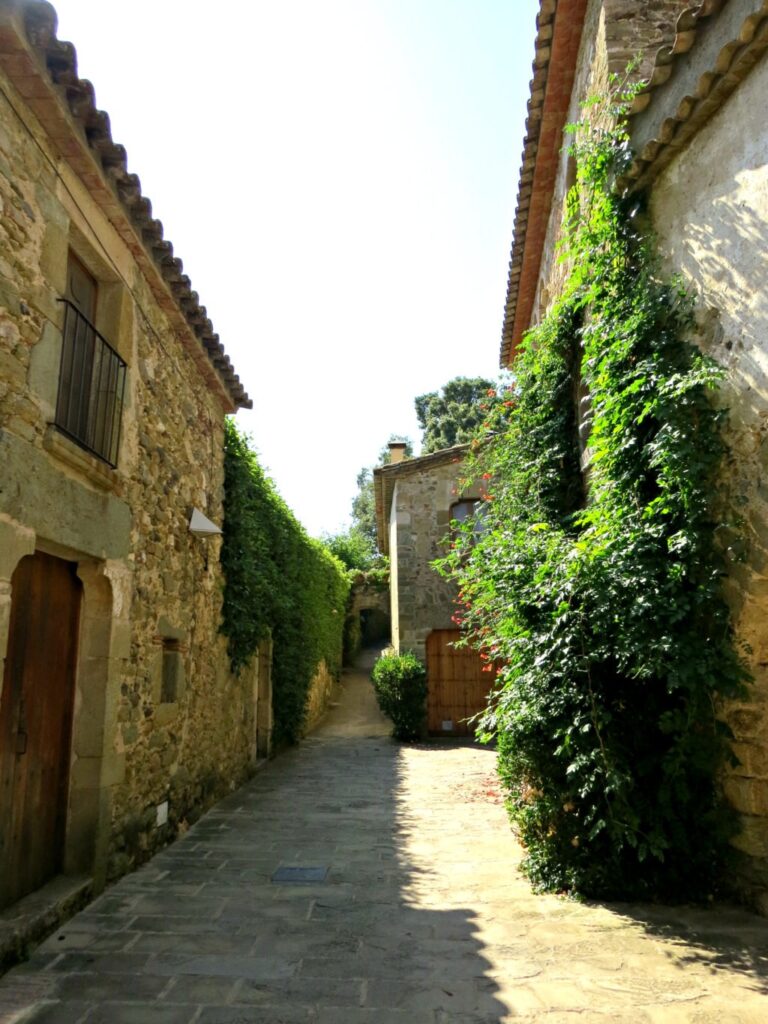
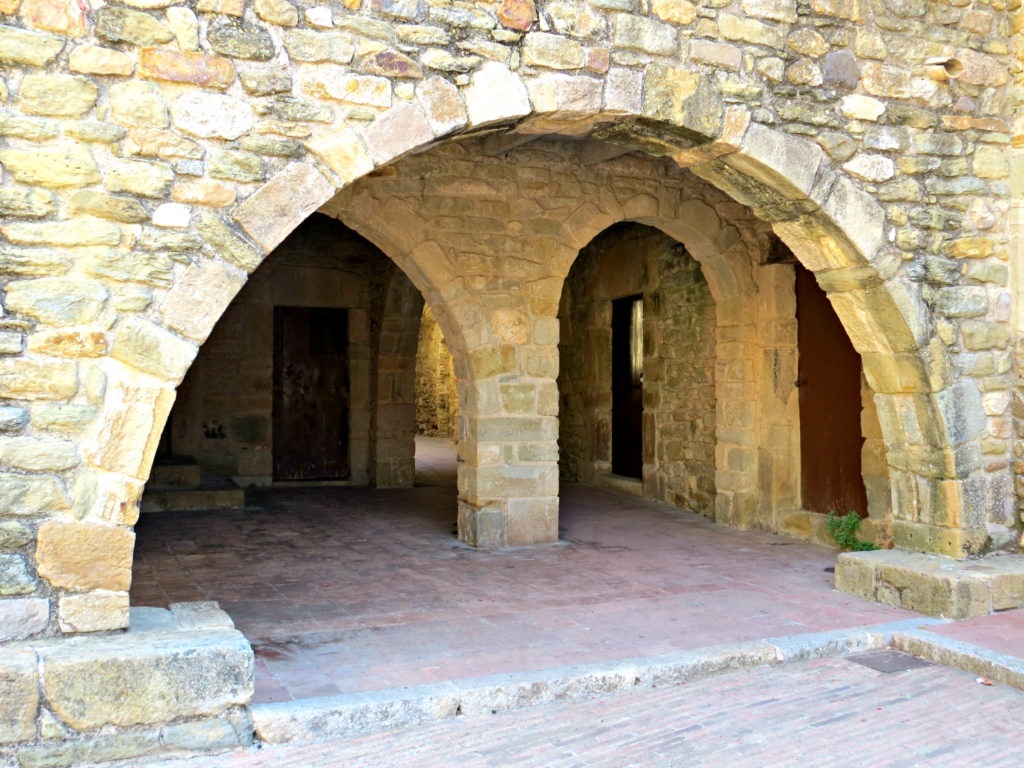 Monells is an adorable town and absolutely gorgeous as well as charming, so do not plan to only stop by for a few minutes. You really have to walk around slowly and enjoy the town in order to really understand what makes it so special. Despite the sweltering heat in the summer months, you can find a nice restaurant with outdoor seating in the shade. It will feel like one of life’s little luxuries.
Monells is an adorable town and absolutely gorgeous as well as charming, so do not plan to only stop by for a few minutes. You really have to walk around slowly and enjoy the town in order to really understand what makes it so special. Despite the sweltering heat in the summer months, you can find a nice restaurant with outdoor seating in the shade. It will feel like one of life’s little luxuries.
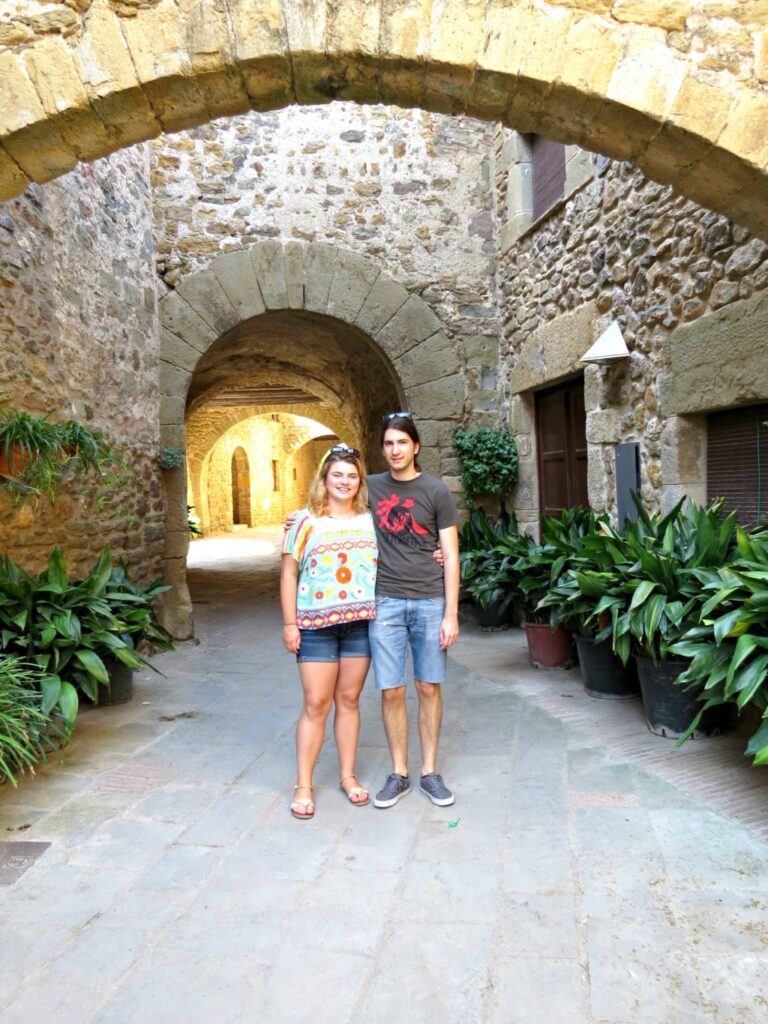 Monells is characterised by its many arches and also the beautiful main square: Plaça Sant Jaume I. There’s also an Olive Square, which features some lovely olive trees–feel like you’re in Spain yet?
Monells is characterised by its many arches and also the beautiful main square: Plaça Sant Jaume I. There’s also an Olive Square, which features some lovely olive trees–feel like you’re in Spain yet?
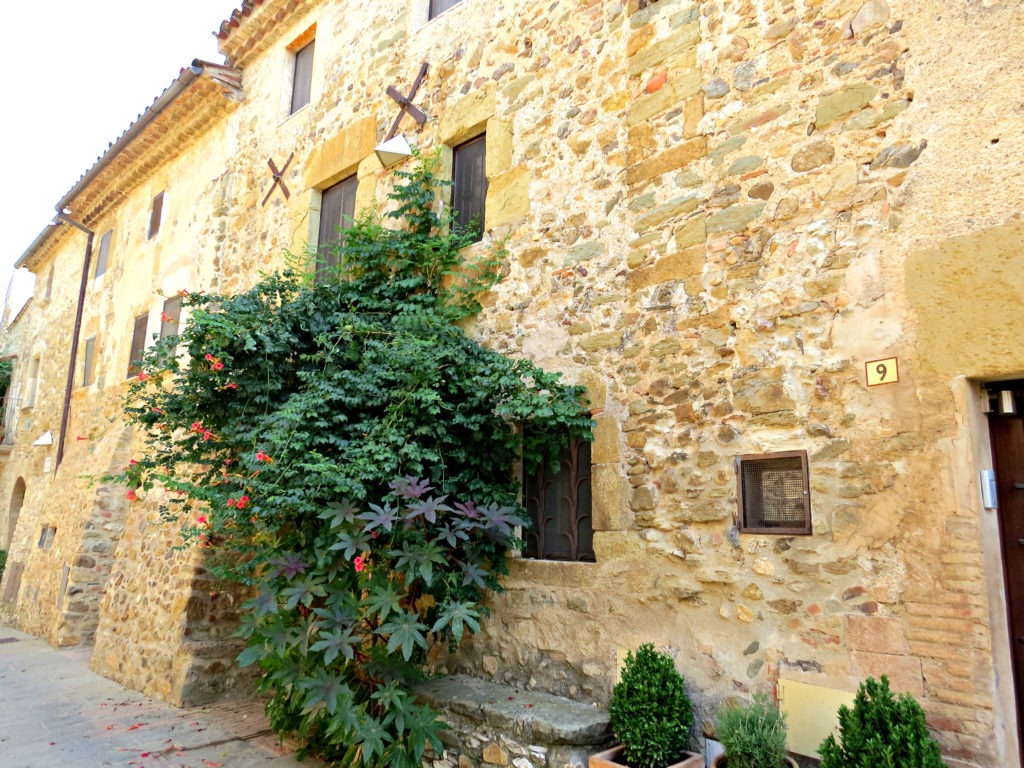

Peratallada
Our next stop was Peratallada, a slightly more well-known medieval town. It was declared a Historical-Artistic Areas as well as a Cultural Asset of National Interest. What does all of this mean? Well, it means that Peratallada is considered one of the most important villages in Catalunya with medieval architecture.
The town’s name is derived from pedra tallada, meaning ‘carved stone’. So, it makes sense that most of the buildings are built from stone carved from the fosse or moat which still encircles parts of the town.
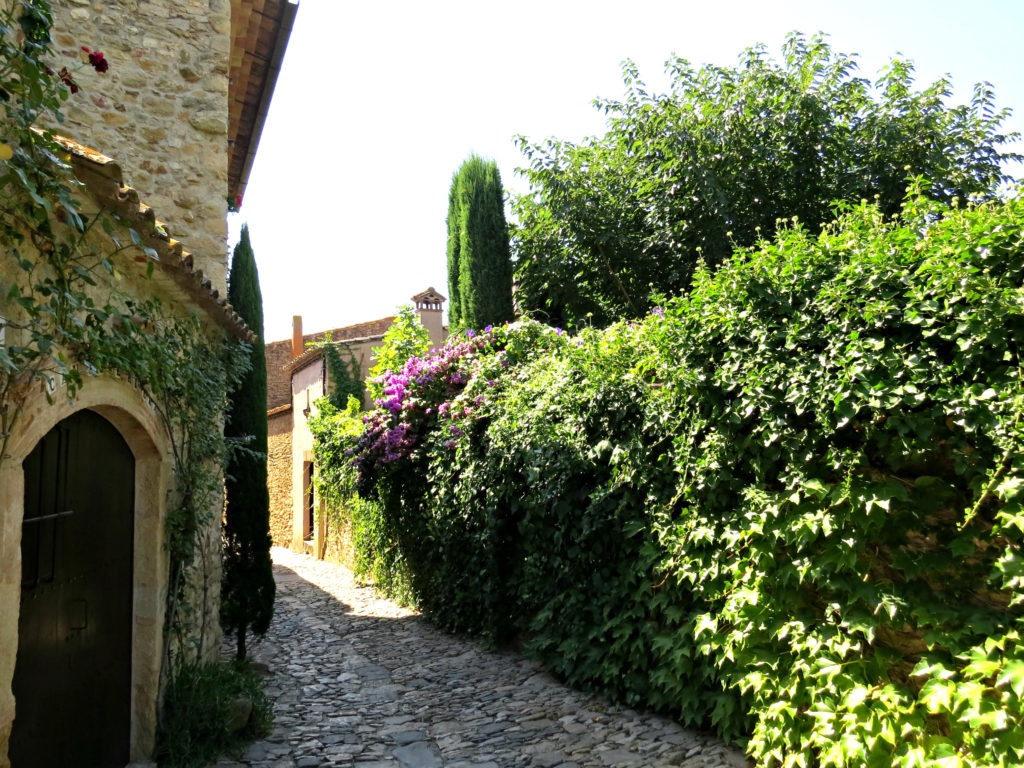
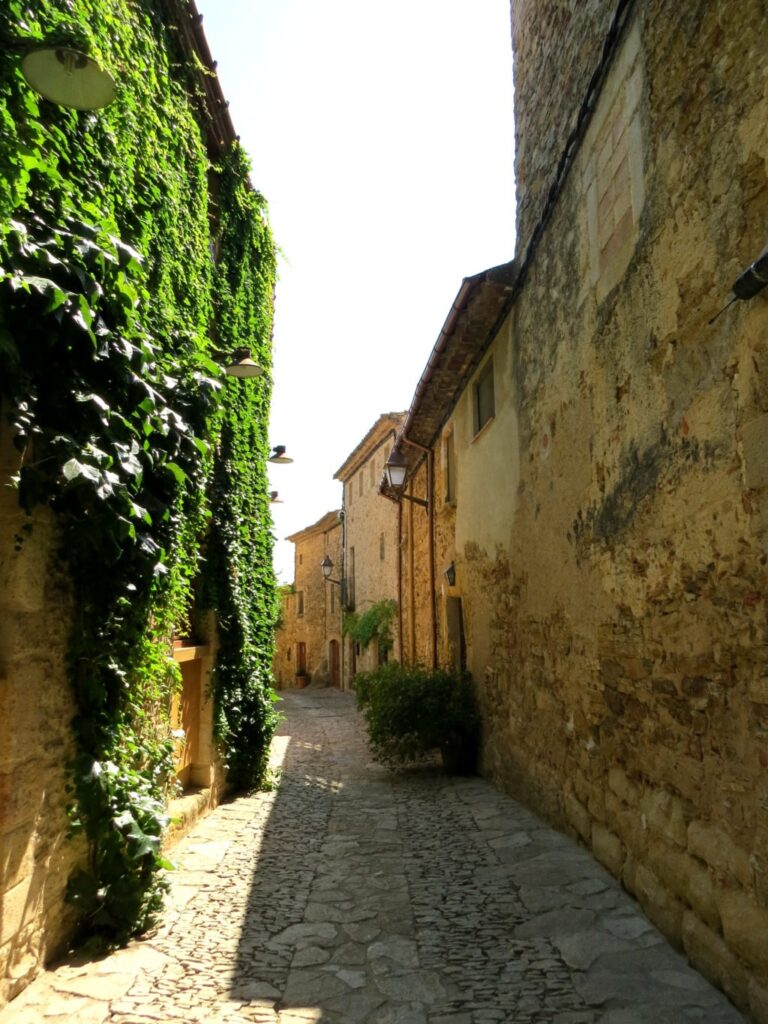
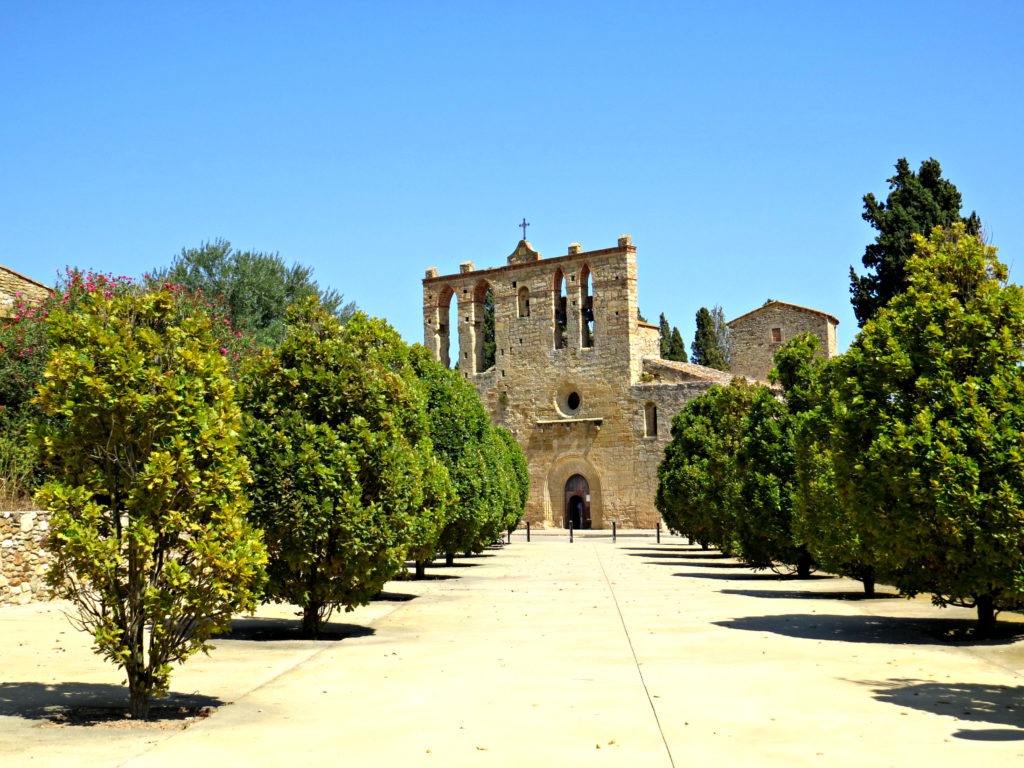 It has the beautiful, long narrow streets as well as the magical greenery that somehow just flows through and around the buildings.
It has the beautiful, long narrow streets as well as the magical greenery that somehow just flows through and around the buildings.
Peratallada, being a slightly larger town, is also well-known for its restaurants, shops, and art galleries. It’s also a beautiful place to take pictures.
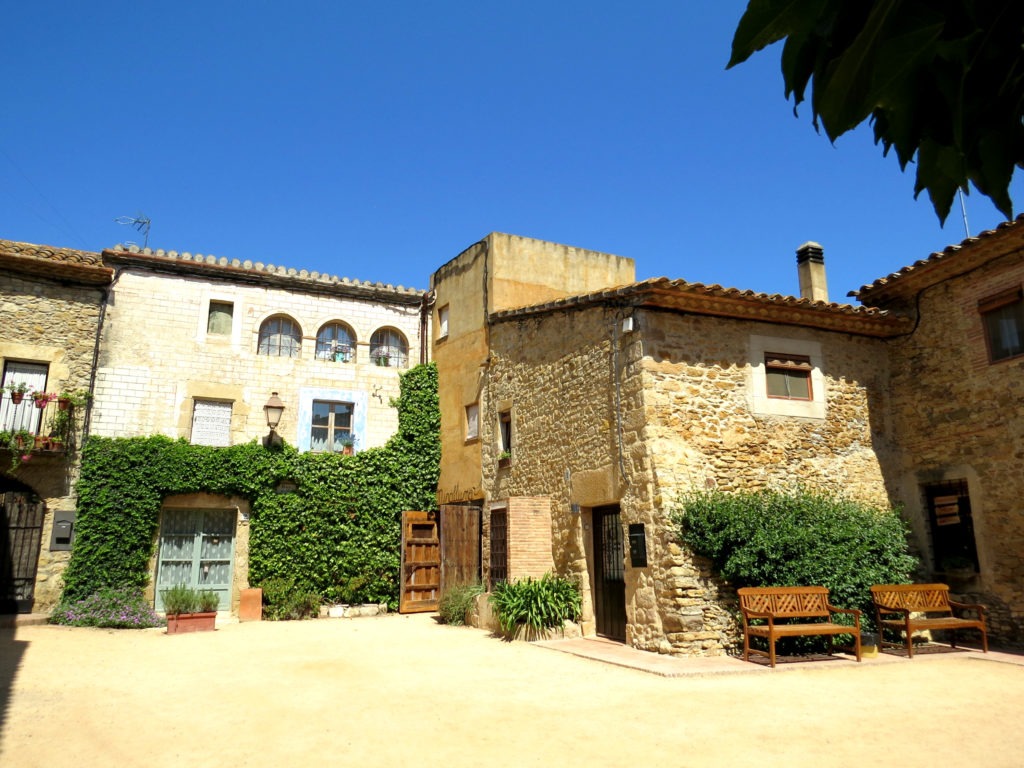
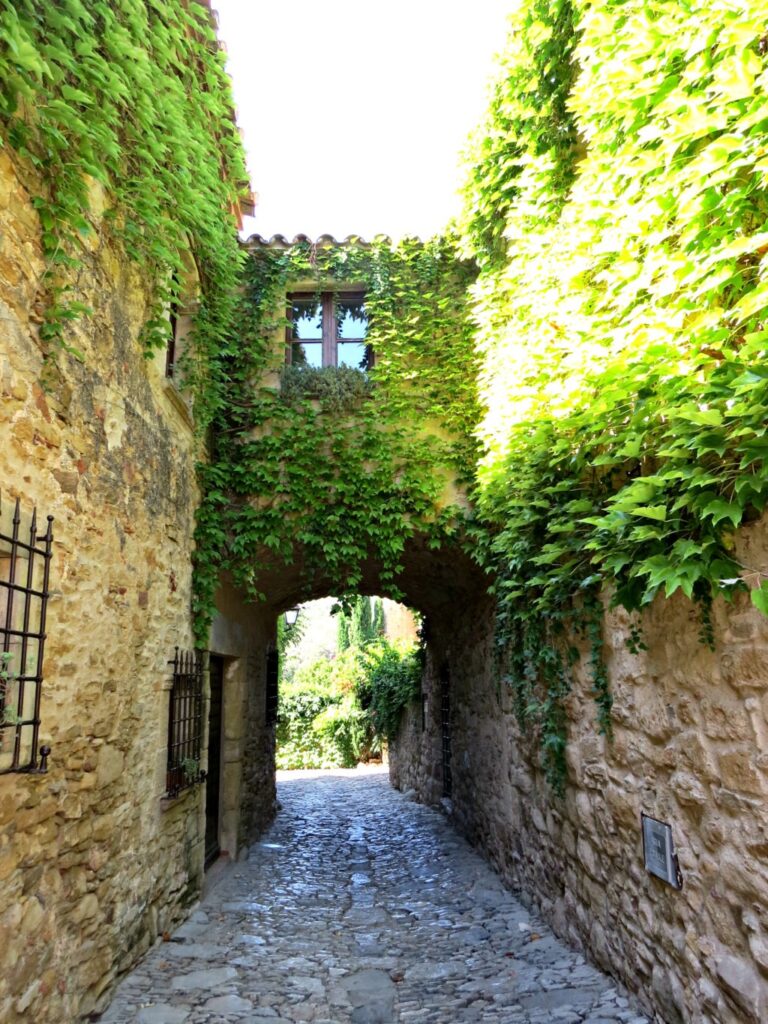
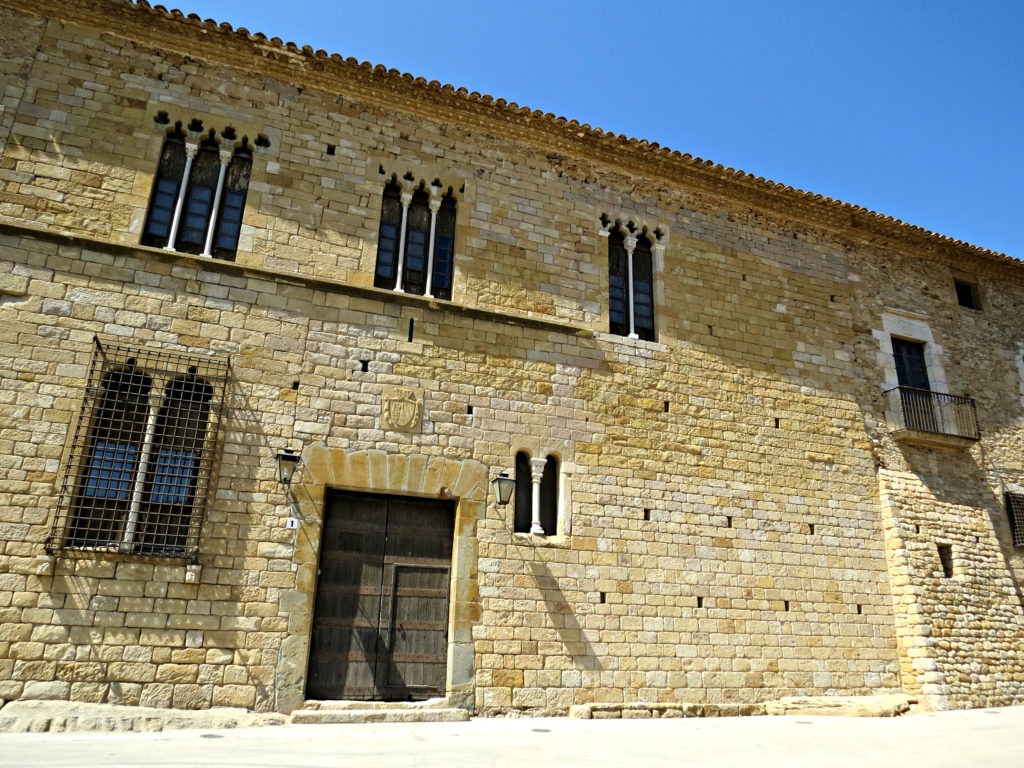
Pals
Our last small stop was Pals. Located near the coast, the town has the advantage of taking in tourism because of its medieval charm as well as for its underwater attractions. Out of all the towns I have visited, Pals is probably the most ‘French-feeling’ town I encountered.
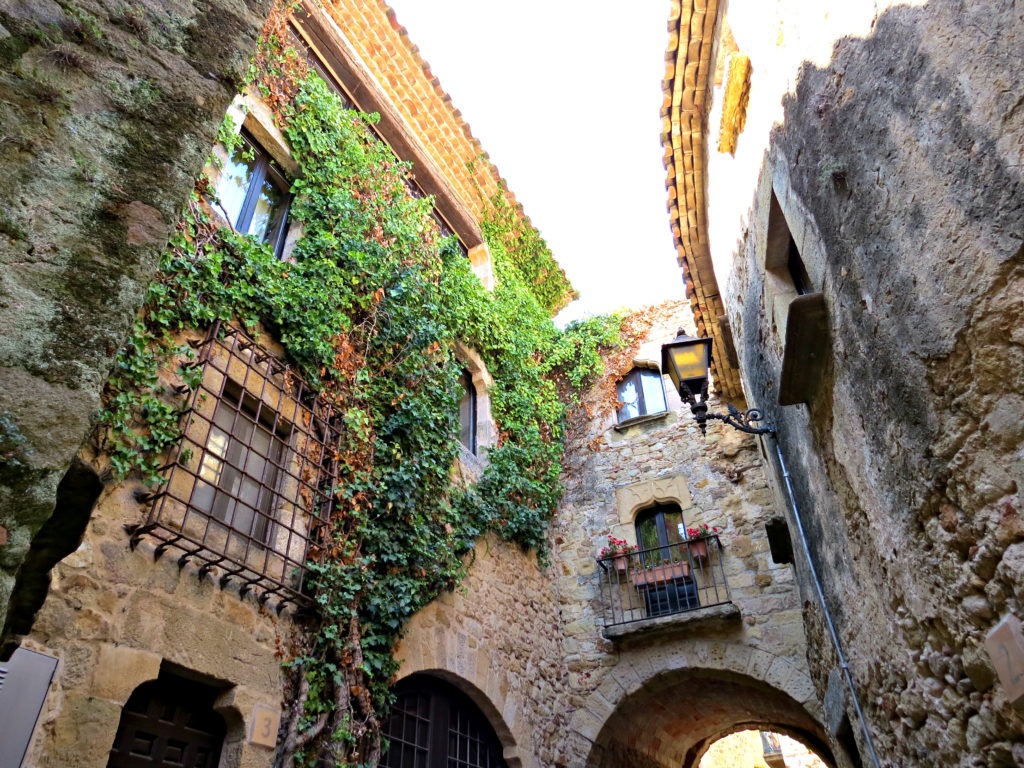
Our little road trip went from west to east, and so Pals is the closest medieval town to the coast. Pals has a well-restored gothic quarter with a medieval romanesque tower and a clock tower.
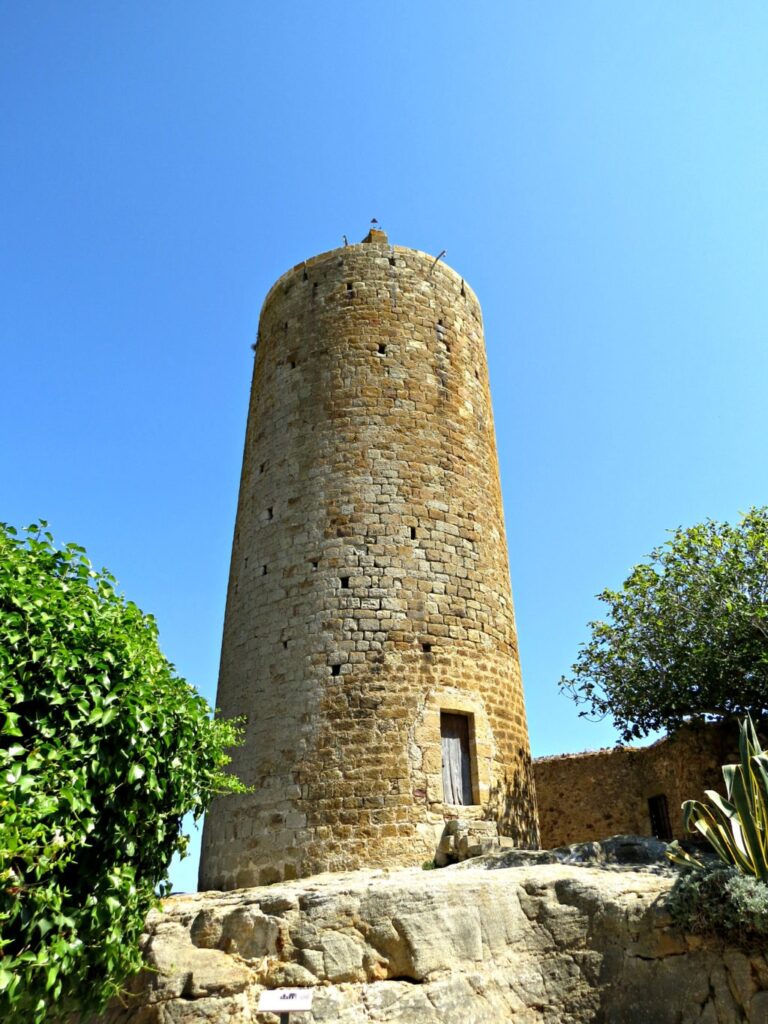
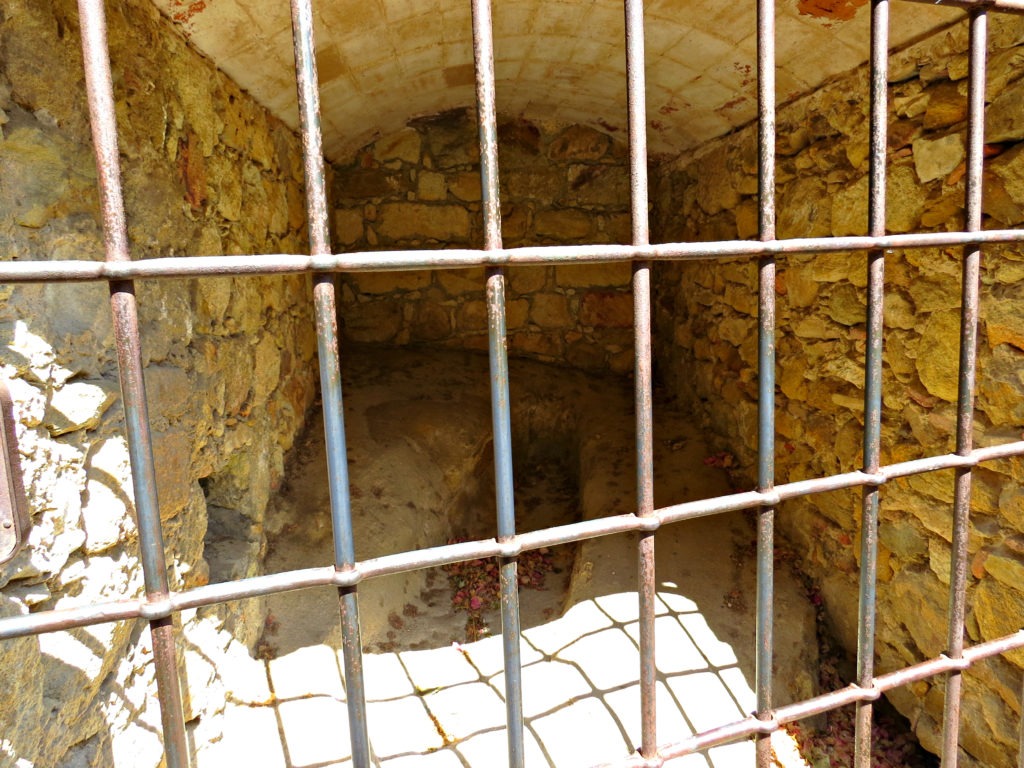
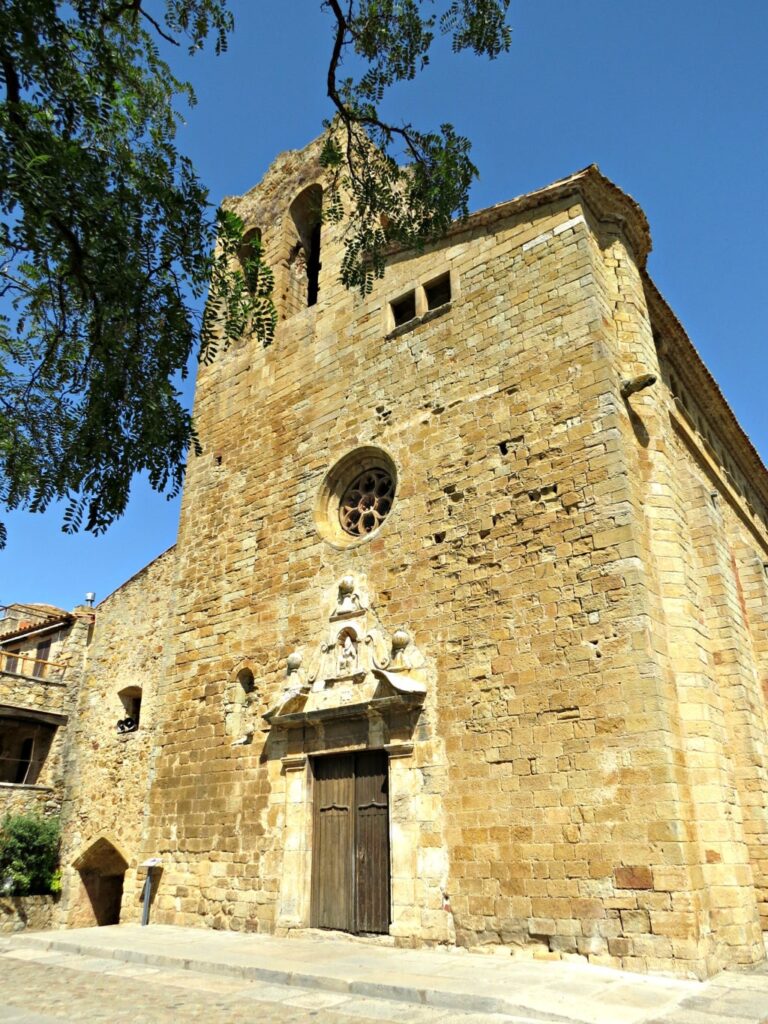 Pals is situated on a hill, so there are some great views of the countryside as well as the sea.
Pals is situated on a hill, so there are some great views of the countryside as well as the sea.
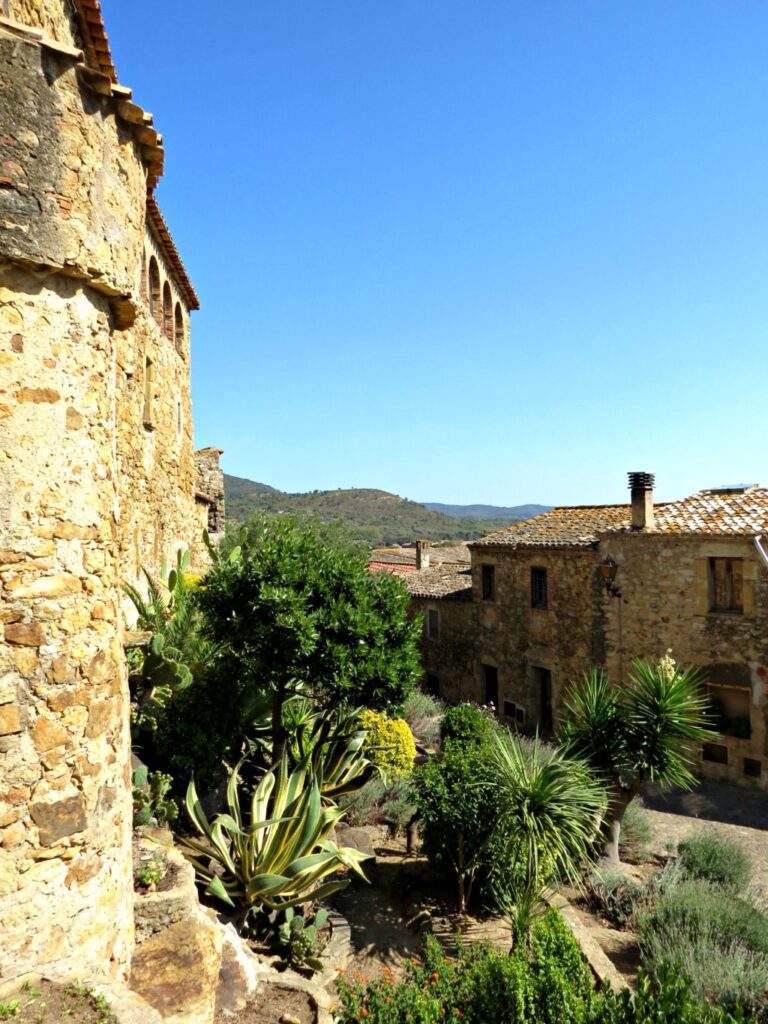 And with that, this ends my tour of Baix Empordà. It truly is a lovely area and these towns I visited I researched thoroughly to make sure I received the best samples of the region. I highly recommend giving patron to some wonderful restaurants as well. Until next time!
And with that, this ends my tour of Baix Empordà. It truly is a lovely area and these towns I visited I researched thoroughly to make sure I received the best samples of the region. I highly recommend giving patron to some wonderful restaurants as well. Until next time!
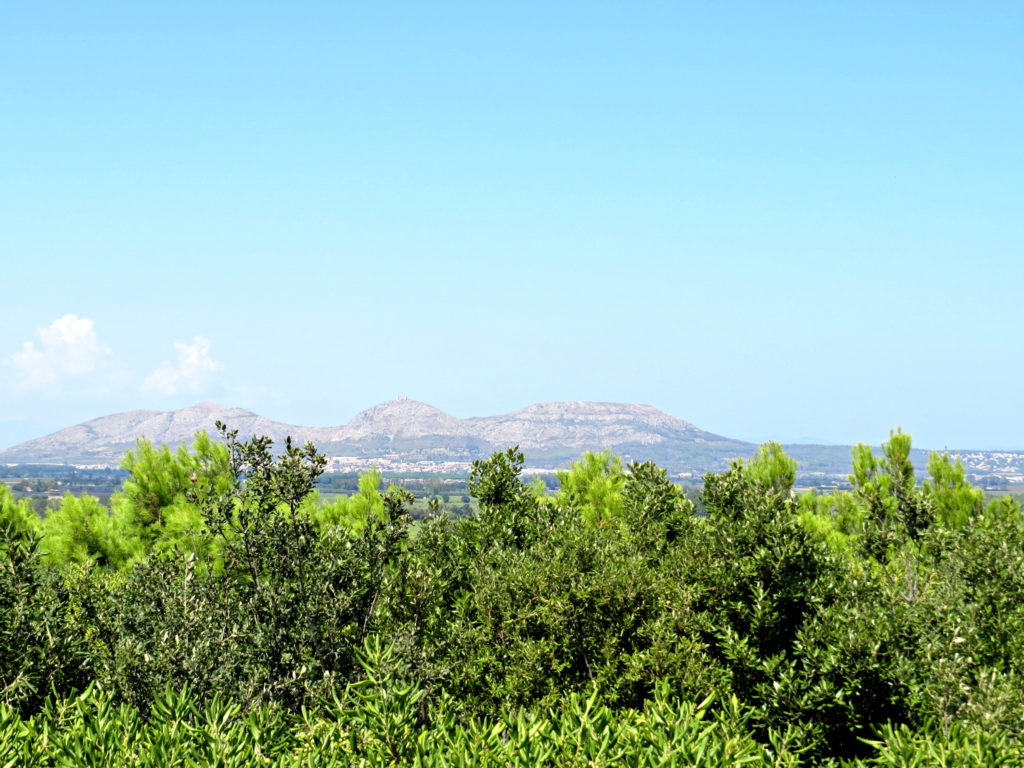

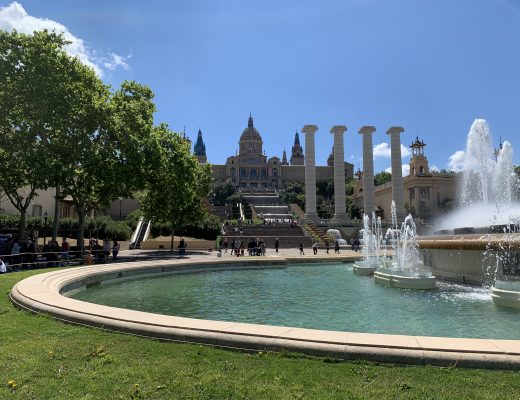

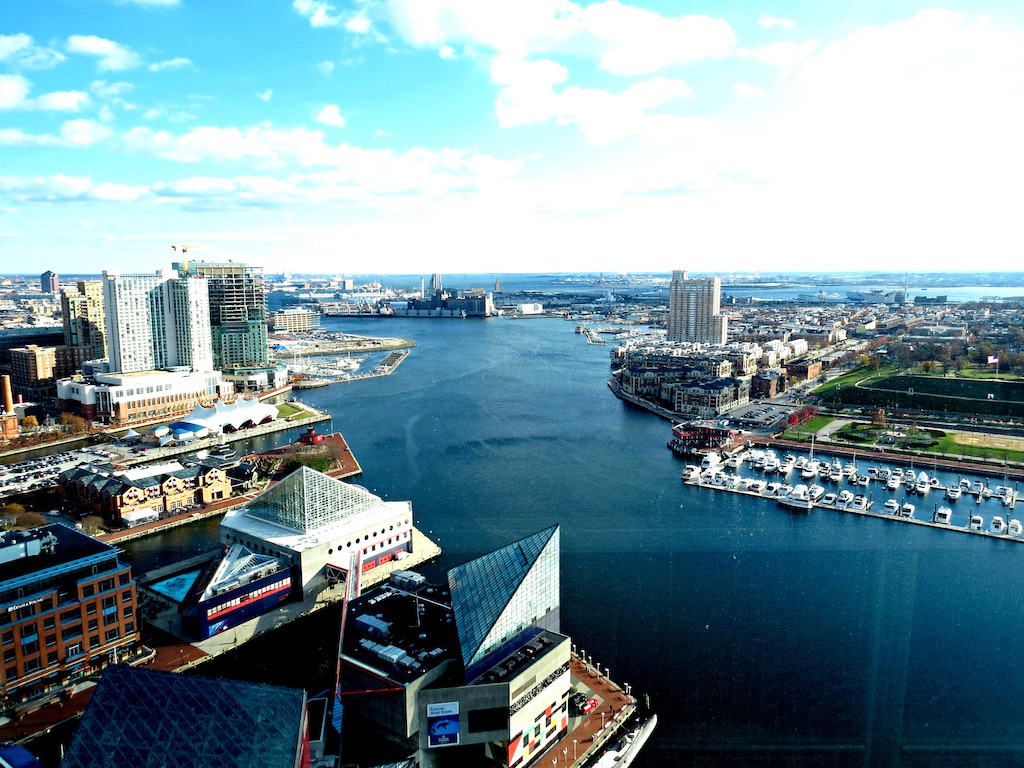
No Comments